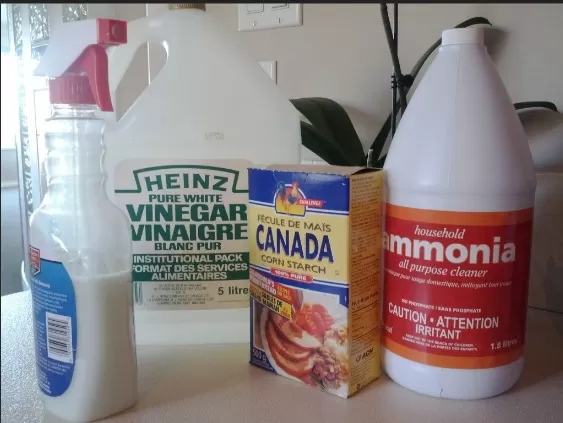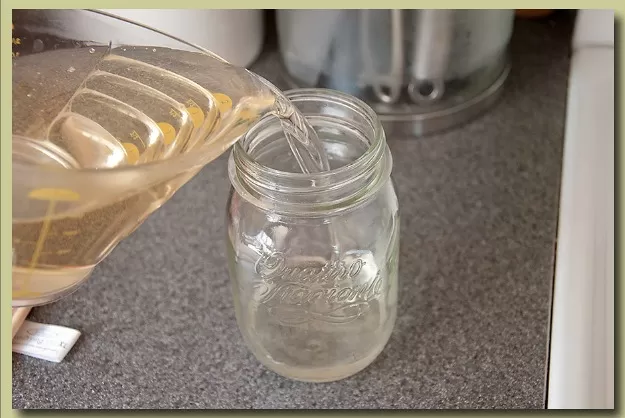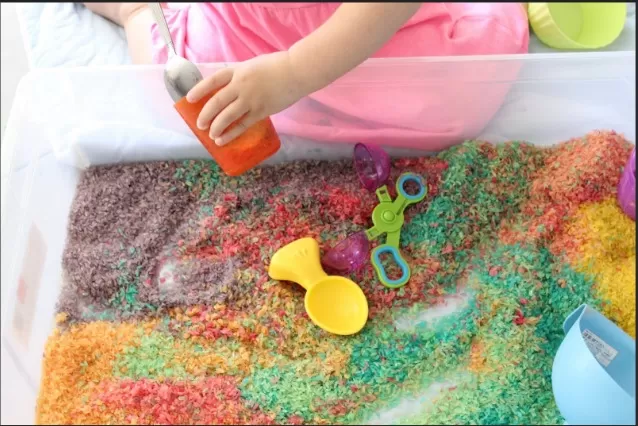5 Cleaning Habits to Blame for Your Messy Home. When it comes to cleaning our homes, everyone seems to have their own set of recommendations. However, not all cleaning habits are as effective as their proponents claim. In fact, some of these habits can do more harm than good, especially when it comes to specific materials that require special care.
Using the wrong cleaning products can render your efforts useless or, worse yet, damage the very surfaces you’re trying to clean. That’s why it’s crucial to separate fact from fiction and learn which bad cleaning habits to ditch for good.
Why Vinegar Isn’t a Substitute for Disinfectants: Ensuring Effective Cleaning and Germ Prevention

Vinegar is renowned for its cleaning properties, capable of cutting through grease and creating an unfavorable environment for certain bacteria.
However, it’s important to understand that vinegar alone may not be sufficient for preventing the spread of persistent germs, such as the flu virus. In order to maintain a hygienic environment, especially during flu season, it’s crucial to incorporate a proper disinfectant into your cleaning routine.
While vinegar can certainly contribute to general cleanliness, it lacks the specific germ-fighting capabilities of dedicated disinfectants.
To effectively combat the spread of harmful pathogens, it’s recommended to periodically use a home cleaning solution that is specifically labeled as a disinfectant.
By understanding the limitations of vinegar and utilizing appropriate disinfectants as needed, you can ensure that your cleaning efforts not only tackle grease but also provide the necessary protection against stubborn germs.
Understanding the Limitations of Bleach: Effective Disinfectant, but Not a Universal Cleaner
Bleach is widely known for its powerful disinfectant properties, making it highly effective at killing germs.
However, it’s important to note that bleach may not necessarily serve as an all-purpose cleaner. To effectively remove dirt, mildew, and residue from a surface, it’s necessary to perform thorough scrubbing and rinsing before applying bleach. Additionally, it’s essential to exercise caution when using bleach on certain surfaces like granite or marble, as it can be too harsh and potentially cause damage.
While bleach excels at disinfecting, it may not provide the desired cleaning results when used alone.
It’s advisable to use appropriate cleaning methods to lift dirt and grime before resorting to bleach as a disinfectant. This approach ensures that surfaces are thoroughly cleaned before the disinfection process, resulting in a more comprehensive and Hygienic Cleaning routine.
Remember, while bleach is a valuable tool for disinfection, it’s important to recognize its limitations as a general cleaner and take precautions to protect sensitive surfaces.
The Dangers of Mixing Ammonia with Other Cleaners: Safety Precautions and Alternatives

Ammonia, known for being less harmful to the environment compared to bleach, is a common ingredient in various household cleaners.
However, it’s crucial to understand the potential dangers associated with mixing ammonia-based cleaners with bleach. Combining these substances can create a hazardous chemical reaction that poses risks to your health and safety.
It is strongly advised against mixing them together.
Additionally, using undiluted ammonia is not recommended.
It is important to dilute it according to the instructions and use it in a well-ventilated area to minimize exposure to potentially harmful fumes. Furthermore, individuals with respiratory disorders should exercise extra caution or even avoid using ammonia altogether due to its potential respiratory irritant properties.
To ensure a safe and effective cleaning routine, it is advisable to explore alternative cleaners that are specifically designed for your cleaning needs.
There are numerous eco-friendly and respiratory-friendly options available in the market that can provide effective cleaning results without the risks associated with mixing ammonia or using it in an unsafe manner.
Prioritizing safety and considering alternative Cleaning Solutions will not only protect your health but also contribute to a cleaner and healthier living environment.
Understanding the Importance of Floor Finishes: Tailoring Cleaning Methods for Optimal Floor Care
It is commonly believed that the type of wood determines the appropriate cleaner for your floors.
However, the crucial factor to consider is actually the type of finish your floors have. Neglecting to identify the specific floor finish before cleaning can potentially lead to unintended damage. Therefore, it is essential to determine the type of finish on your floors before proceeding with any cleaning regimen.
For surface-sealed floors, a gentle pH-balanced cleaner can be used after sweeping.
This combination of sweeping and mopping with a suitable cleaner helps maintain the integrity of the floor while effectively removing dirt and grime.
On the other hand, untreated or oil-treated floors require a more delicate approach.
These floors should be treated with care, typically by wiping them with a damp rag as needed. To protect and enhance the appearance of untreated or oil-treated floors, it is recommended to apply a liquid or paste wax.
By understanding the specific requirements of your floor’s finish, you can tailor your cleaning routine accordingly.
This ensures that your floors remain in optimal condition and are properly cared for without risking any damage that may result from using an inappropriate cleaner or method.
Choosing the Right Approach for Cleaning Pet Accidents: Considering Alternatives to Vinegar

Handling pet accidents promptly is crucial to prevent stains and odors from setting in.
While diluted vinegar is often suggested as a green cleaning solution, the strong odor of vinegar may not be desirable for everyone. In such cases, it’s recommended to explore commercial pet stain removers as an alternative.
Commercial pet stain removers are specifically formulated to effectively eliminate pet stains and odors, providing a convenient and efficient solution.
These products are designed to tackle the specific challenges posed by pet accidents, ensuring thorough cleaning without leaving behind any unpleasant smells.
By opting for a commercial pet stain remover, you can address the issue of pet accidents while maintaining a fresh and odor-free environment, without the need to tolerate the strong scent of vinegar.
*The information is for reference only.